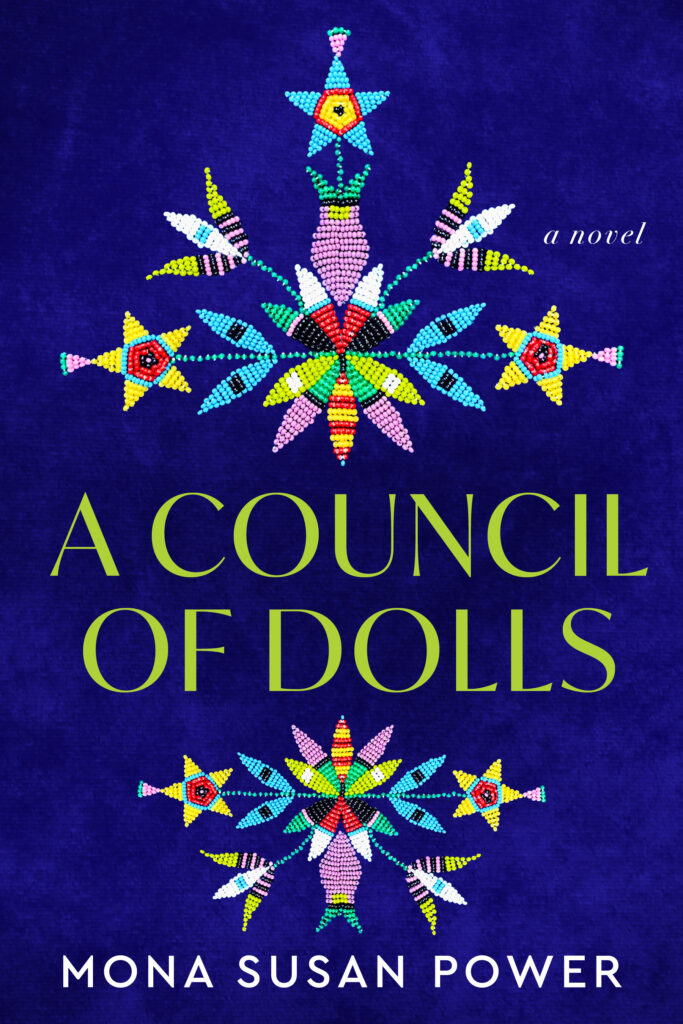'Native teachings continue to live on' in project-based school born out of #NoDAPL movement

Mona Susan Power said she hopes A Council of Dolls inspires Indigenous readers to begin healing from the past. Photo Credit/Ted Hall, courtesy of Mona Susan Power
Mona Susan Power reveals an ancestral story of healing and strength in her latest novel “A Council of Dolls.”
It tells of three Native Yanktonai women as they navigate through the perils of the Indian boarding schools, assimilation and the massacre of Indigenous peoples. Readers follow Sissy, born in 1961; Lilian, born in 1925; and Cora, born in 1888 on a journey back in time from mid-century Chicago to the homelands of the Dakota people.
Humanities North Dakota invited the author to speak at a virtual event for “A Council of Dolls” on April 14 at 4 p.m. Sue Skalicky, the program director, describes Power as “a dear friend” to Humanities North Dakota. The nonprofit has featured her work for nearly 10 years, at both in-person and virtual events. One reason for making Power’s latest event virtual was to offer easy access.
“A Council of Dolls” is a book that will start brave conversations among groups of people, and we wanted to provide that opportunity virtually to people who may not be able to get to one of her in-person events,” said Skalicky. “We believe wholeheartedly in the power of books to bring people together.”

The author completed this piece of historical fiction after a number of turnabouts. Initially, she wrote a short story based on growing up in 1960s Chicago, where her mother helped found the American Indian Center in 1953. Among childhood memories of the city were news reports about a nurse who hid under a bed to escape mass murderer Richard Speck who killed eight of her colleagues.
That left a lasting impression on the now 63-year-old writer. “I wrote this scene for the story and was surprised by the sudden appearance of a doll I’d carried with me everywhere in childhood — Ethel, a black, tiny Thumbelina doll,” said Power. “She turned out to be an ally and major character in the piece.”
It took awhile for Power to write the novel as the idea began to grow. In an accident, she broke her arm near the shoulder and could only type with one hand. During her recovery, she continued to develop the project in her head. After the doctor cleared her to work, Power finalized the book in four months.
The author said she finished her first draft on May 26, 2021, days before the discovery of a burial site near the Kamloops, Canada, former residential school. An investigation there found the unmarked graves of 200 Indigenous children. “Goosebumps broke out on my flesh, and I now understood the urgency I’d felt to write this book, now,” Power said.
For her, the writing process was both exhilarating and intensely emotional. The story addressed sensitive topics of family history and dynamics. “Sometimes, I didn’t realize I was crying until I kept swiping tears from my face as I typed,” Power said.
“A breakthrough moment hit when I realized I could create a multi-generational tale,
rather than stick to one generation for an entire novel,” she said. “I did this because I didn’t want to villainize any of the parents in the book. For me, the true villain is colonization.”
The author said it’s important for Native and non-Native people to know about this history because intergenerational trauma has a lingering impact. “We carry historical trauma in our bodies, our DNA, our psyches,” said Power. “The damage that was done to Indigenous peoples of this continent via the system of colonization is still impacting our lives and communities.”
The Standing Rock Sioux citizen hopes that readers will be inspired by the final section, which focuses on healing wounds of the past. “When I was young I never would have thought that my life would begin in my 60s — but after years of working to heal, I’ve stepped into a much healthier life,” Power said. “And when we are gentler with ourselves, we are more stable and mature, more reasonable, which makes us better citizens of the world. Our troubled world needs the very best we have to offer.”
By fall, Power hopes to finish her next novel, a spooky story set in Massachusetts where she lived for 14 years. According to Power, it’ll likely take a year or two before the book is published. “Even though some scary things happen in this new novel, it’s fun for me, working with the five main characters who are all Native students at Harvard.”
Up Next: Humanities North Dakota is set to host Rebecca Clarren, author of “The Cost of Free Land,” for an in-person event at the Bismarck State College NECE Auditorium on Monday, April 29 at 6 p.m.
Adrianna Adame
Former Indigenous Democracy Reporter
Location: Bismarck, North Dakota
See the journalist page*Quotes from Mona Susan Power sent via email in answer to Buffalo’s Fire questions, April 16, 2024
© Buffalo's Fire. All rights reserved.
This article is not included in our Story Share & Care selection.The content may only be reproduced with permission from the Indigenous Media Freedom Alliance. Please see our content sharing guidelines.
Curtis Rogers sets his sights on law school
Students use space to relax and connect to Native culture
New law requires schools to teach Native American history
Terrence and Patricia Leier are ‘giving back for the sacrifice that the Natives made’
In September, at least 73 Native people were reported missing in North and South Dakota — 65 are children







